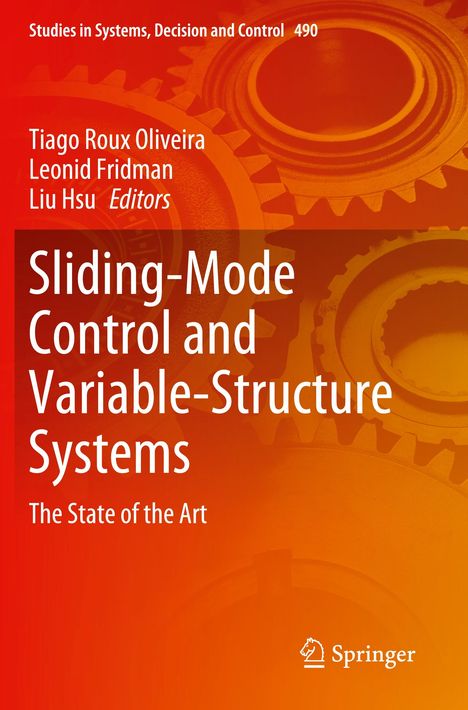Sliding-Mode Control and Variable-Structure Systems, Kartoniert / Broschiert
Sliding-Mode Control and Variable-Structure Systems
- The State of the Art
(soweit verfügbar beim Lieferanten)
- Herausgeber:
- Tiago Roux Oliveira, Leonid Fridman, Liu Hsu
- Verlag:
- Springer, 11/2024
- Einband:
- Kartoniert / Broschiert, Paperback
- Sprache:
- Englisch
- ISBN-13:
- 9783031370915
- Artikelnummer:
- 12115725
- Umfang:
- 616 Seiten
- Gewicht:
- 920 g
- Maße:
- 235 x 155 mm
- Stärke:
- 33 mm
- Erscheinungstermin:
- 18.11.2024
- Hinweis
-
Achtung: Artikel ist nicht in deutscher Sprache!
Weitere Ausgaben von Sliding-Mode Control and Variable-Structure Systems |
Preis |
|---|
Klappentext
This book reflects the latest developments in sliding-mode control (SMC) and variable-structure systems (VSS), comprising contributions by leading researchers and an international range of experts. Such contributions highlight advances in various branches of the field¿conventional and higher-order SMC with continuous- and discrete-time implementation and theory and applications both receive attention. The book consists of six parts. In the first, new SMC/VSS algorithms are proposed and their properties are analyzed. The second part focuses on the use of observers to solve the estimation and output-feedback control problems. The third part discusses the discretization aspects of SMC algorithms. Parts IV and V provide important insights on the use of adaptation laws for non-overestimated control gains and chattering alleviation. The last part examines the applications of these SMC/VSS ideas to real-world systems.
Sliding-Mode Control and Variable-Structure Systems introduces postgraduates and researchers to the state of the art in the field. It includes theory, methods, and applications relevant to workers in disciplines including control, automation, applied mathematics, electrical and mechanical engineering, instrumentation, electronics, computer science, robotics, transportation, and power engineering. Its clear style and deep exposition help readers to keep in touch with tools that are, thanks to the robustness and insensitivity to perturbations of the SMC/VSS paradigm, among the most efficient for dealing with uncertain systems.

